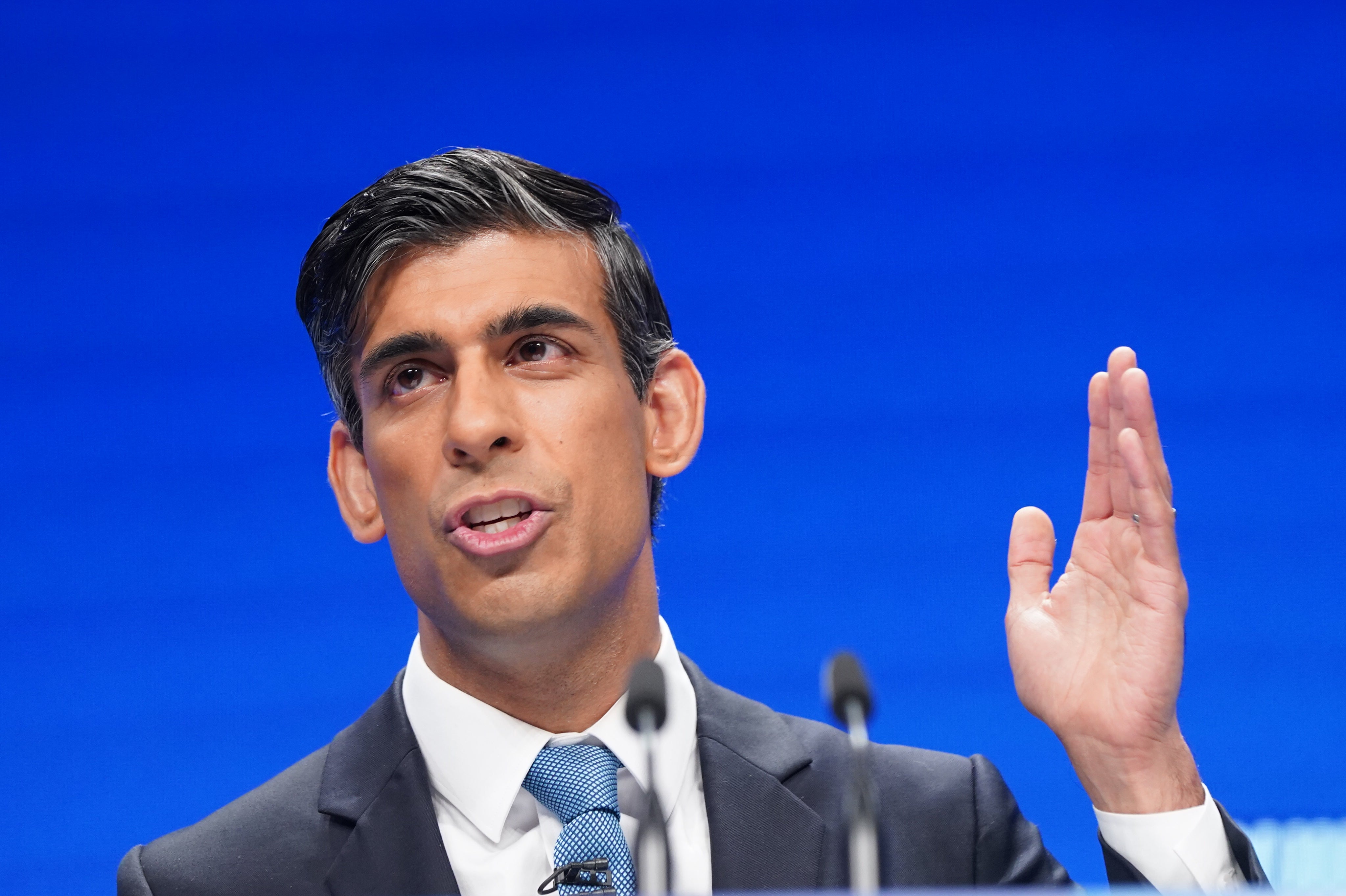What do the state of public finances mean for Rishi Sunak’s leadership bid?
The deficit is still massive but the numbers are moving in the right direction, giving the chancellor a little headroom to dish out that extra billion or two, writes Hamish McRae


“A billion here, a billion there…” said the US senator Everett Dirksen, and the UK chancellor, Rishi Sunak, seems to have taken this message on board. The second part of the quote, which may or may not have been said by the senator, is “and pretty soon you’re talking real money”. But are we?
The support for the battered hospitality and leisure businesses struck by the new variant is a financial story, an economic story, and a political story.
Finance is the easy bit. There will be more than a billion needed, but to put that into perspective, the government deficit is running at around £3bn a week. So a billion is not big in the totality of the country’s financial accounts. We got the monthly update on public finances yesterday, which showed that the deficit continues to fall sharply.
The Office for Budget Responsibility (OBR) noted that so far this year, the deficit is running a little below its forecast, thanks to higher-than-expected tax revenues more than offsetting expected spending. The tax revenue story is particularly positive. Income tax and national insurance receipts in November were 5 per cent above the OBR’s expected profile, VAT was 7.5 per cent up and corporation tax was nearly 13 per cent higher than expected.
While higher inflation is increasing the interest cost of servicing the national debt, relative to the size of the economy the debt is up only a little on a year ago, at around 96 per cent of GDP. The deficit is still massive. There is no escaping that. But the numbers are moving in the right direction, giving the chancellor a little headroom to dish out the extra billion or two.
Now for economics. Omicron is already hitting our economy hard, and will hit it harder in the weeks ahead. Because the UK is early in what looks like a global spread of the variant, we are taking the punishment ahead of other countries, but everywhere will be damaged. How badly? We don’t know.
Earlier this month, the Organisation for Economic Cooperation and Development warned that it might cause a severe shock. The International Monetary Fund managing director Kristalina Georgieva said much the same. But they don’t really know any more than the rest of us. What we do know is that restrictions on our activities are going to cut what we do, and that will happen whether the restrictions are compulsory or voluntary. People will go out less not because they are told to, but because they are frightened of catching the virus.
However, there is a silver lining to what is undoubtedly a huge cloud. We know from the experience of the past two years that some of the money not spent on services such as eating out will be spent on other things. And we know that once the threat recedes, the economy bounces back pretty fast. That does not help the pubs, restaurants, theatres and airlines. An empty airline seat is an empty airline seat. But in broad macroeconomic terms, the UK economy has shown itself to be resilient, as indeed have most other economies across the developed world. Put crudely, if the world economy has a lousy first quarter of next year, as it almost certainly will, then it will have correspondingly better second and third quarters.
To keep up to speed with all the latest opinions and comment sign up to our free weekly Voices Dispatches newsletter by clicking here
Now to politics. You don’t need to have an inside track to the gossip of Westminster to be aware that the UK may well have a new prime minister by this time next year. Rishi Sunak is the favourite on Betfair to be the next Tory leader, followed by Liz Truss and then Michael Gove.
But the chancellor is less than popular among the party faithful for the tax increases he brought in to try to cut back the deficit. So were he able to announce not only the billion here and the billion there of extra spending, but also that public finances had so improved come the summer that he was in a position to roll back those increases, then that might draw some of the sting – and naturally bolster his position.
It is for the political pundits to opine on his chances. But for this economic commentator, the main news for him yesterday was not that he was handing out that extra billion of help, but rather that the economy was doing well enough to keep the tax revenues flooding in to Her Majesty’s Revenue and Customs.



Join our commenting forum
Join thought-provoking conversations, follow other Independent readers and see their replies
Comments